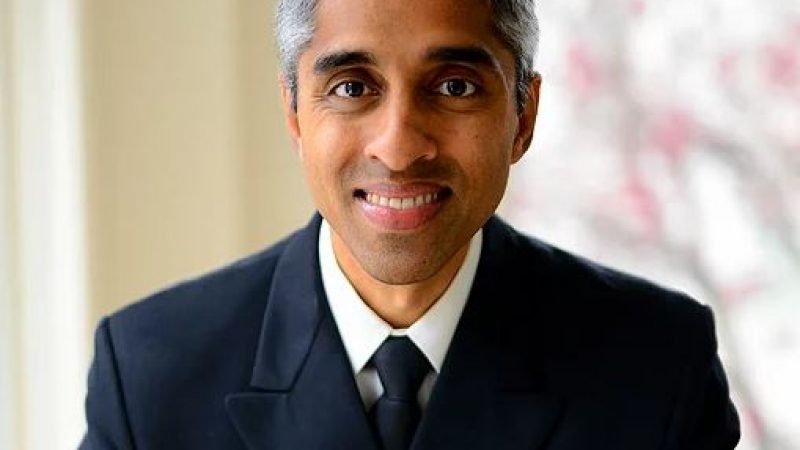Even before COVID-19, employees were suffering from a “real crisis” of disconnection in the workplace. While the pandemic accelerated it, now is the time to solve it.
Dr. Vivek Murthy, former U.S. Surgeon General, said upwards of 25 percent of people struggle with loneliness in the workplace, about the same percentage of those who experience loneliness in the general population.
“What happens is that their engagement at work drops, their productivity suffers, their creativity is inpaired, and it can even have impacts on their longevity in the organization as well as have an impact on the people around them who feel less connected to them and less fulfilled in their own experience,” said Murthy, author of the recently released New York Times best-selling book, “Together: The Healing Power of Human Connection in a Sometimes Lonely World.”
Murthy joined Dr. Richard Davidson, founder and director of the Center for Healthy Minds at UW-Madison, in a fireside chat that headlined the Greater Madison Chamber of Commerce’s sixth annual IceBreaker program yesterday. Before the event, GMCC President Zach Brandon said that nearly 700 business leaders were tuning in to IceBreaker.
“There’s a ripple effect if you will, of loneliness in the workplace, and recognizing that powerful impact that it has is why people… have made it a point to say addressing loneliness in the workplace is not just the human thing to do but it actually makes sense from a business perspective,” Murthy said.
He suggested businesses create opportunities for employees to actually understand one another beyond their skill sets, create opportunities for them to help one another and model the importance of social connection and vulnerability. Murthy added organizations that have used these “ingredients” to build a “culture of connection” make the workplace a healthier and more productive space.
He noted that while technologies such as Zoom have expanded connection, people can experience video fatigue, which is both mentally and physically exhausting.
“What you don’t have is the benefit of being together in person, which as it turns out is one of the most important stress relievers we have are interactions with other people,” Murthy said.
Things to keep in mind, he recommended, are that people are living in a time where they are struggling and hurting in the workplace — not just because of the nature of work — but because of things happening outside of work: homeschooling children, caring for sick parents or dealing with an economic crisis.
“Because of that, it’s incredibly valuable to have leaders in an organization that acknowledge that pain and recognize the hardship people are enduring,” Murthy said. “It’s also very powerful to have set places and environments where people can actually talk among themselves about the challenges they’re facing and help one another.”
While focusing on employee benefits such as mental health services, childcare services or other services that address critical needs is “extraordinarily important and very generous,” he added enabling people to actually help one another in a community is empowering.
“When people come together and help one another, whether it’s helping each other figure out child care or sharing tips for how to do homeschooling… not only do people get assistance and support, but the act of giving help is extraordinarily powerful in terms of how it makes us feel more connected and how empowering it is,” Murthy said. “That’s why people helping people is one of the most powerful antidotes to loneliness and disconnection and to emotional fatigue.”
-By Stephanie Hoff
WisBusiness.com



